Just ripped up pavers--steps to make it grass & flagstones?
pbl_ge
10 years ago
Related Stories
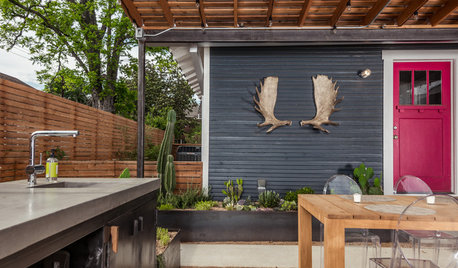
PATIOSPatio Details: See What Makes Up This Outdoor Room in Houston
Want to get the look of this patio and outdoor kitchen? Here's the lowdown on design, materials and costs
Full Story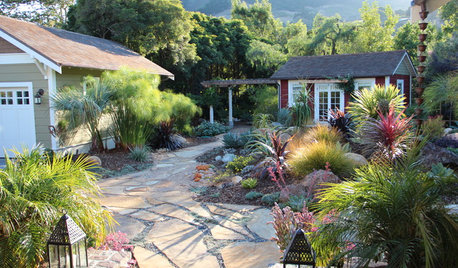
GARDENING AND LANDSCAPINGPave the Way to Landscape Style With Flagstone
Define a patio, build a path, make a fire pit ... learn about flagstone's many uses, plus costs and considerations, here
Full Story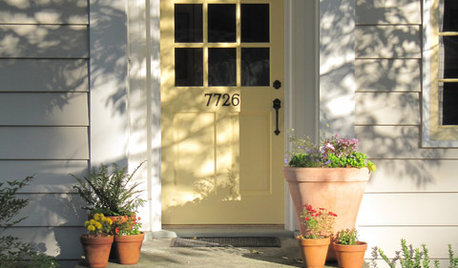
GARDENING AND LANDSCAPINGSpring Checklist: Freshen Up Your Home's Curb Appeal
Step outside and use these tips to show off your home to its best advantage this spring
Full Story
GARDENING AND LANDSCAPING8 Great Ways to Use Landscape Pavers
Today's Stepping Stones Define a Space While Adding Affordable Style
Full Story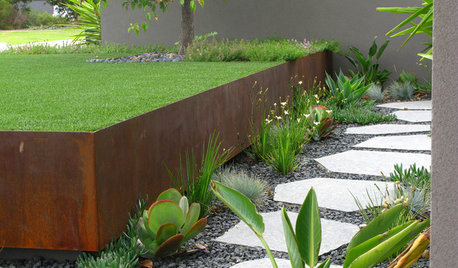
LANDSCAPE DESIGN7 Questions to Ask Before Laying Stepping Stones
These broken-up pathways invite you to put a spring in your step — while adding functionality to the garden
Full Story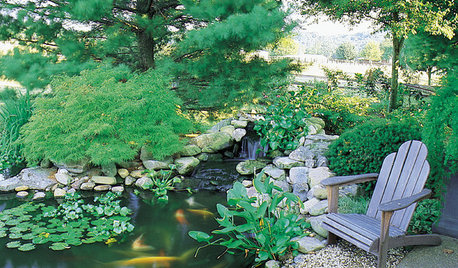
GARDENING AND LANDSCAPINGHow to Make a Pond
You can make an outdoor fish paradise of your own, for less than you might think. But you'll need this expert design wisdom
Full Story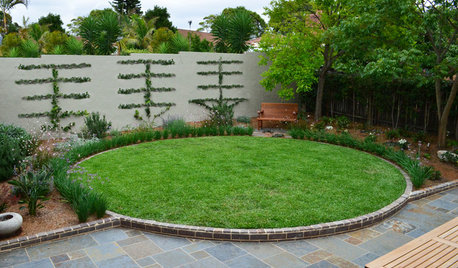
GARDENING GUIDESSmall Gem Lawns: More Impact From Less Grass
Instead of letting the lawn sprawl, make it a shapely design element in your yard. You’ll reap benefits both practical and aesthetic
Full Story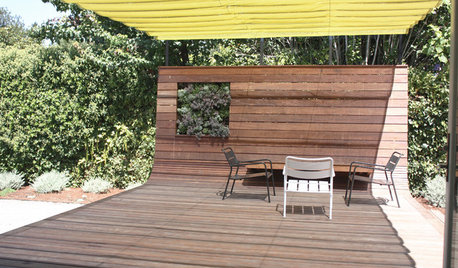
DECKSA Family-Friendly California Yard Wises Up About Water
Pavers and unthirsty plants replace Kentucky bluegrass in a Menlo Park landscape for a family of 4
Full Story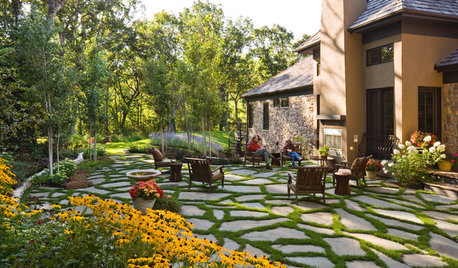
GARDENING AND LANDSCAPINGPatio Pavers Go Green in Between
Kind to the environment and easy on the eyes, pavers with moss or other foliage in the joints create a charming permeable hardscape
Full Story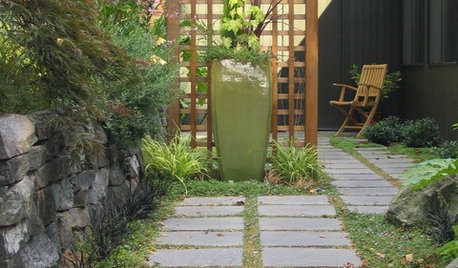
GARDENING AND LANDSCAPINGLandscapes Make a Privacy Statement
Between a fortress and a wide open space lies the sweet spot for just the right amount of privacy in your exterior spaces
Full Story







dchall_san_antonio
grass1950
Related Professionals
Elwood Landscape Architects & Landscape Designers · Middle Island Landscape Architects & Landscape Designers · Milwaukee Landscape Architects & Landscape Designers · Richmond Heights Landscape Architects & Landscape Designers · Towson Landscape Architects & Landscape Designers · Forest City Landscape Architects & Landscape Designers · Azalea Park Landscape Contractors · Boca Raton Landscape Contractors · Downey Landscape Contractors · Fairfield Landscape Contractors · Paramus Landscape Contractors · East Norriton Landscape Contractors · Ferguson Landscape Contractors · Palos Heights Landscape Contractors · Castaic Swimming Pool Builderspbl_geOriginal Author
grass1950
pbl_geOriginal Author
grass1950
dchall_san_antonio
pbl_geOriginal Author